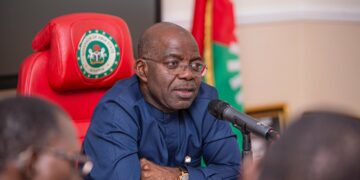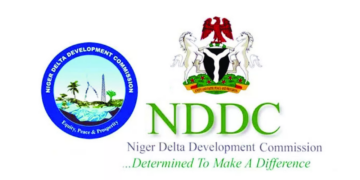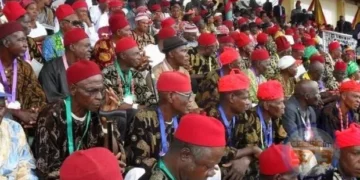The Financial Reporting Council of Nigeria (FRCN), Securities and Exchange Commission (SEC), NGX Regulation Limited (NGX RegCo), and Ernest &Youn (EY) engaged key stakeholders in the adoption of the IFRS Sustainability Disclosure Standards, IFRS S1 and IFRS S2 (ISSB Standards).
The Lagos training seeks to provide a technical training programme designed to support high-quality disclosures by helping preparers understand the requirements of the ISSB Standards.
Speaking at the ISSB Preparer Readiness Training on the roadmap for implementing IFRS S1 and S2 standards in Lagos, the director-general of SEC, Emomotimi Agama, said that the adoption of the International Sustainability Standards Board (ISSB) disclosure framework will help reduce information risk, lower the cost of capital for issuers, and build stronger investor confidence in Nigeria’s capital markets.
He explained that alignment with the ISSB global baseline is central to improving transparency and making Nigerian companies more attractive to both domestic and international investors.
“The SEC’s priority is clear, comparable, decision-useful disclosures that enhance investors’ understanding of risk management, cash flow resilience, and transition strategies,” he said.
Agama, who was represented by the Commission’s head, Lagos Zonal Office, John Briggs, stated that as a member of the International Organisation of Securities Commissions (IOSCO), the SEC is actively participating in the ISSB Standards Adoption Readiness Work Group (ARWG), which designed Nigeria’s roadmap for phased implementation.
According to the Commission, early adopters began reporting voluntarily in 2024, with full mandatory adoption to be staged between 2027 and 2030. The timeline will see significant Public Interest Entities (PIEs) adopted by 2027, followed by other PIEs in 2028, and small and medium enterprises by 2030.
Agama said the Commission would adopt a progressive approach, saying that “the SEC will begin with review-based supervision and ‘comply or explain’ expectations, moving progressively towards full enforcement as preparer and assurance capacity deepens.”
The executive secretary/CEO, Financial Reporting Council (FRC) of Nigeria Dr. Rabiu Olowo noted that the ISSB standard represents a crucial step towards achieving global consistency and comprehensive reporting.
He noted that as stakeholders embarked on preparing ISSB training, it recognized the commitment of entities with the knowledge that are necessary to navigate the adoption of ISSB standards in line with the adoption roadmap that was laid out last year.
He reiterated that Nigeria in 2022 had taken a bold step to announce of adoption of ISSB standards
Olowo said, “the adoption of the ISSD standard is driven by multiple issues. It is out of transparency, consistency, reliability, sustainable finance information that is critical for informed decision making. Investors, regulators, development partners and the general public are increasingly demanding disclosures that go beyond financial performance that capture climate-related opportunities and other sustainability that form long-term financial issues of an organisation.”
He further disclosed that work was underway with the FRCN and NGX to enable digital reporting through taxonomy-driven, machine-readable disclosures that improve access to information for investors.
Agama also highlighted ongoing efforts to coordinate investor practices to reduce duplication of reporting requirements, stating that the Commission was engaging pension funds, asset managers, development finance institutions, and institutional investors through platforms such as the Capital Market Master Plan Implementation Council (CAMMIC) to harmonise sustainability information requests.





